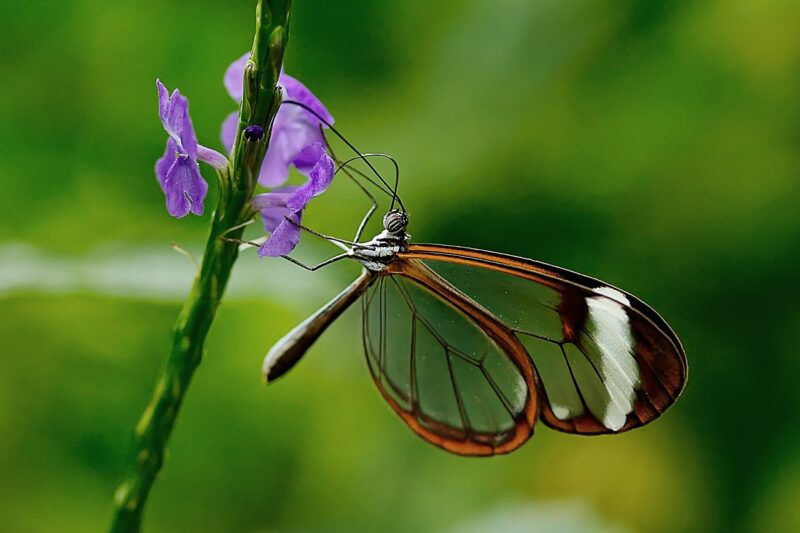
If you’re tired of the same old cats and dogs and are considering a more exotic companion, you’re in luck. The United States is home to a variety of exotic pets that are legal to own, providing unique companionship along with their vibrant personalities and distinct care requirements. However, it’s crucial to remember that while these animals can be fascinating and rewarding pets, they come with responsibilities that often far exceed traditional pets. This guide will explore the top 10 exotic pets you can legally own in the U.S., delving into their care needs, behavior, and the unique rewards they offer.
1. Sugar Gliders
Sugar gliders are small, nocturnal marsupials native to Australia and New Guinea. With their playful demeanor and active nature, these little creatures have captured the hearts of many pet owners. They are social animals and thrive in pairs, so it’s recommended to adopt at least two.
- Diet: Their diet mainly consists of fruits, vegetables, and a protein source like insects or special sugar glider feed.
- Habitat: Sugar gliders need a tall cage with plenty of enrichment, including climbing opportunities and hiding spaces.
2. Fennec Foxes
Fennec foxes are small, sandy-colored foxes known for their oversized ears and playful demeanor. They are highly sociable animals and can bond closely with their owners.
- Diet: Their diet includes high-quality protein sources such as lean meats and specialty fox food to ensure proper nutrition.
- Space Requirement: Fennec foxes need ample space to roam and play, ideally in a secure outdoor enclosure when supervised.
3. Axolotls
Often referred to as “Mexican walking fish,” axolotls are actually amphibians that remain gilled and aquatic throughout their lives. Garnishing interest for their adorable looks and regenerative abilities, they are striking pets.
- Tank Requirements: A filtered aquarium with plenty of hiding spots is vital for their well-being, and maintaining the right water temperature is crucial.
- Diet: They primarily feed on worms, small pellets, and other protein sources that help support their health.
4. Hedgehogs
Hedgehogs are small, nocturnal mammals with a peculiar prickly appearance that has turned them into popular pets. They are relatively low maintenance and friendly, although they can be shy and need time to warm up to their owners.
- Housing: A spacious cage with bedding to burrow into is essential, along with toys and exercise wheels to keep them active.
- Diet: High-quality hedgehog food supplemented with occasional fruits and proteins like cooked chicken is ideal.
5. Bearded Dragons
Bearded dragons are among the most popular reptiles kept as pets due to their friendly nature and manageable size. They also have excellent personalities and can even be taken outdoor for a stroll!
- Habitat: They require an appropriately sized terrarium, UVB lighting, and temperature gradients for proper health care.
- Diet: These reptiles require a balanced diet of vegetables, insects, and specialized foods to maintain their health.
6. Macaws
Macaws are vibrant, intelligent birds known for their impressive vocal abilities and striking plumage. They are highly social and require lots of mental stimulation and interaction.
- Social Needs: Macaws thrive on companionship and should not be left alone for long periods. Regular interaction and socialization are critical.
- Diet: A varied diet with fruits, vegetables, nuts, and specially formulated bird pellets is necessary for their nutritional needs.
7. Kinkajous
Kinkajous are nocturnal mammals originating from Central and South America. They are playful, curious creatures that bond closely with their owners, but require a lot of space and attention.
- Housing Needs: They require a large, multi-level cage with climbing opportunities and ample enrichment to stay healthy and entertained.
- Diet: Their diet primarily consists of fruits, vegetables, and some protein. A specialized diet is necessary for their well-being.
8. Tarantulas
Tarantulas are perhaps the most misunderstood exotic pets. They can be fascinating, low-maintenance pets that offer unique observation opportunities for enthusiasts.
- Habitat Requirements: A secure and appropriately sized enclosure with substrate for burrowing is crucial for their well-being.
- Diet: They mainly consume crickets, mealworms, and other small insects to maintain their health.
9. Capybaras
Capybaras, the world’s largest rodents, are incredibly social and intelligent animals that can make charming pets. They do best in pairs and need plenty of space.
- Social Needs: They thrive in social environments and should ideally be housed with at least one other capybara.
- Diet: A diet primarily consisting of hay, fresh vegetables, and some fruits is essential for their nutrition.
10. Tortoises
Tortoises are unique reptiles that can live for decades, making them a long-term commitment. They are low-maintenance but require specific care to thrive.
- Habitat Requirements: An outdoor enclosure with enough space to roam and graze is ideal, as well as a proper setup for temperature and humidity inside a terrarium.
- Diet: A diet rich in greens, vegetables, and special tortoise pellets aids in their healthy growth.
Conclusion
Owning an exotic pet can be a rewarding experience filled with joy and companionship. However, it is vital to thoroughly research each species to understand their specific needs regarding habitat, diet, and social requirements. Exotic pets often require more time, space, and specialized care than traditional pets, so prepare to invest the time and resources necessary to ensure your exotic pet thrives. Whether you choose a curious sugar glider, a regal macaw, or an intriguing axolotl, your life will undoubtedly be enriched by the unique presence of an exotic companion in your home.







